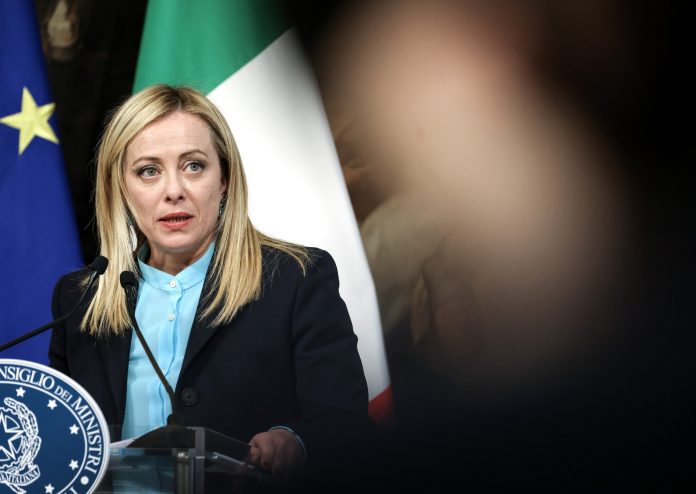Italian Prime Minister Giorgia Meloni introduced proposals for constitutional reform in early December, intending to introduce direct Prime Ministerial elections, according to Politico.
Meloni’s proposal is reminiscent of the Acerbo Law passed by Benito Mussolini in November 1923, which established that the party with the largest share of the vote – even if only 25 per cent – would get two-thirds of the seats in parliament. With his party’s electoral victory, the road to unified rule was paved.
Now, Italy’s current PM is proposing to automatically give the party with the highest percentage of votes a 55 per cent share of parliamentary seats. In other words, as long as one party gets more votes than any other party, regardless of the vote percentage, it will enjoy direct parliamentary control.
If the proposal is passed, her Brothers of Italy party could be in a strong lead, even without an overwhelming majority. It reflects an extreme form of the “winner-take-all” principle.
However, that’s not the only change Meloni hopes to introduce. The proposal also requires each party to nominate a candidate for prime minister prior to the election. Thus, the candidate of the winning party would automatically become the prime minister, considered directly elected by the people.
As a result, the elected PM would gain supreme power in the country.
Meloni’s proposal combines the ideas of a presidential and parliamentary governing system in a way that would presumably ensure a massive concentration of power. The plan would merge the legitimacy and strength of direct presidential elections with the weak division of powers in a parliamentary system.
Of great concern is that Meloni and her group attempted to carry this out secretly. The government press release announcing the plan described it as a “minimalist” approach.
Although the reform amends only two articles of the constitution, it completely changes the power balance in the Italian republic. Meloni justifies her plan with the need for Italy to have more sustainable governments: over the past three decades, they have lasted an average of only two years.
Italian commentators offered many good suggestions on how to adjust the system to make the government more stable. The legal community in Italy is also very critical of the plan.
Meanwhile, the European Union should pay attention to the action of the Italian prime minister, even though she supports the bloc’s decisions. It should remember the price it paid for ignoring events in Hungary in the early 2010s, when the ruling Fidesz party revised the country’s constitution without even holding a national referendum. The party then implemented endless legal changes to consolidate its power, including electoral measures that gave Fidesz a two-thirds majority in parliament.
The EU should not repeat its mistakes. The concentration of power in the hands of the executive violates the principle of democracy enshrined in the EU Treaty (Article 2, Article 10) and is a hallmark of authoritarian systems. The adoption of such a system in any EU member state would set a precedent that would make a further mockery of the idea for a community of democracies.
Europe has institutions dealing with constitutional issues, including the Council of Europe’s Venice Commission. It should consider the proposed constitutional change. The Italian Government could also formally request such a review. If this change were to pass without consideration, a new unwanted conflict within the EU could become inevitable.
